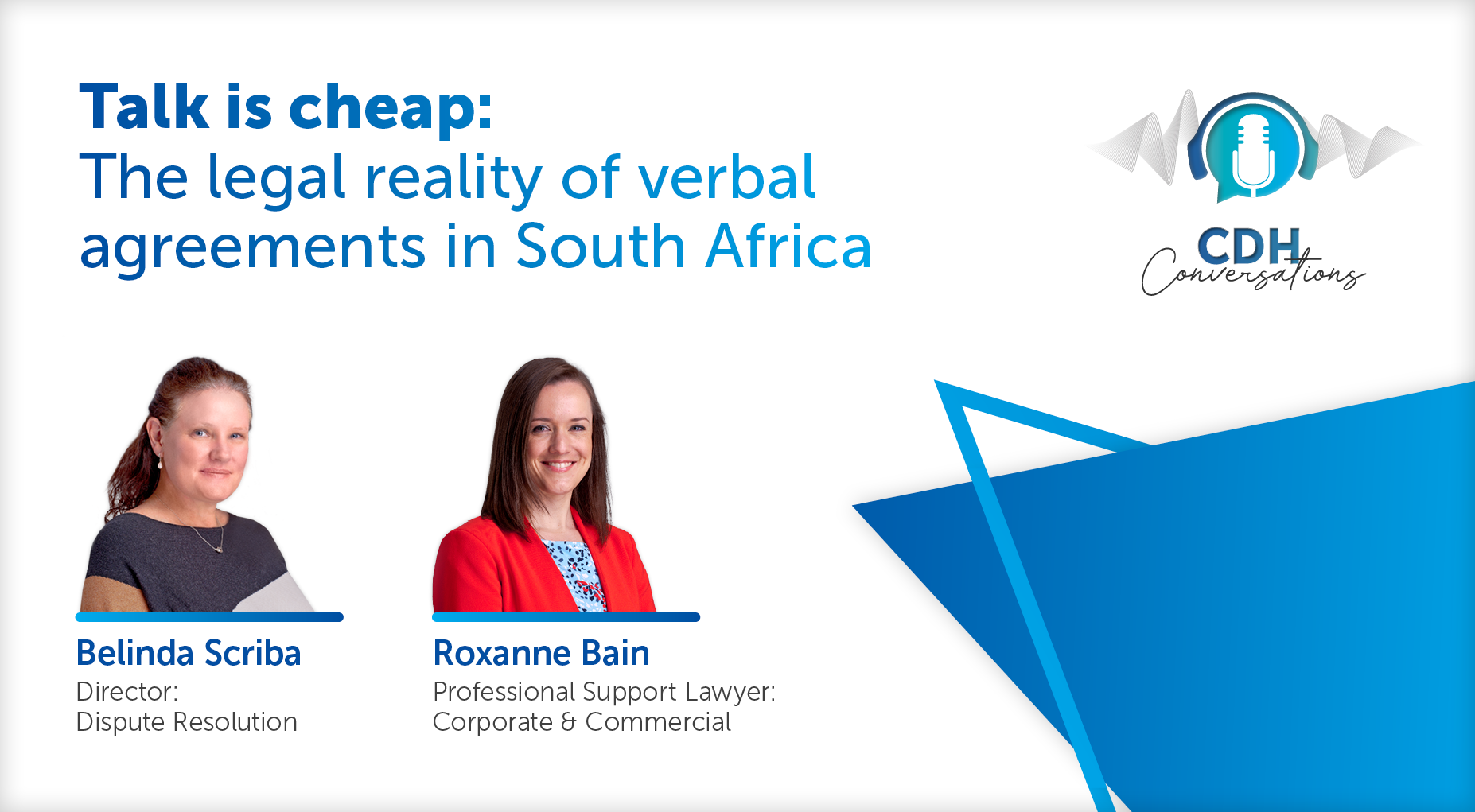The Big Catch: They’ve resigned. Can they compete with my company?
In Big Catch Fishing Tackle Proprietary Limited and Others v Kemp and Others (17281/18) [2019] ZAWCHC 20 (5 March 2019), the High Court considered whether or not an ex-director of a company continued, after his resignation, to owe certain fiduciary duties to a company for which he previously worked and, in owing any fiduciary duties at all, he could be prevented from competing with his former company.
In 2014, now ex-director of Big Catch Fishing Tackle Proprietary Limited (Big Catch) and former Proteas cricketer, Justin Kemp (Kemp), became a 50/50 shareholder and co-director in a private company trading in, amongst other things, the supply of fly fishing equipment and the hosting of fishing and fly fishing tours for customers in international waters and foreign territories as well as to inland and offshore locations in South Africa.
Amidst allegations of channelling business away from Big Catch, Kemp resigned as a director of the company in 2018 and went on to establish a brand new company as a direct competitor of Big Catch. He, however, remained a 50% shareholder in Big Catch and was accordingly still bound by the shareholders agreement.
The applicants in this case sought to interdict Kemp from, inter alia, doing business with, approaching for business, or making contact with, any of Big Catch’s customers, service providers or suppliers with whom Kemp had contact whilst he was engaged with or in the employment of Big Catch.
They contended that the fiduciary duties of Kemp towards Big Catch, flowing from his position as a director, did not cease to exist when Kemp resigned, and as such, Kemp should be interdicted from breaching those fiduciary duties in his dealings with known customers and service providers of Big Catch.
The court confirmed the uncontroversial default position that, during his tenure as a director of a company, a director may not carry on his own business activities in competition with those of the company for which he holds office. However, where a director ceases to hold office, that default position, in the absence of special circumstances (for example a restraint of trade agreement) changes upon his resignation.
The court went on to say that, while certain fiduciary duties may survive the termination of a director’s relationship with the company, an ex-director does not breach any of those fiduciary duties merely because, after his resignation, he takes an active step to ensure that he can continue to earn a living by setting up another business in competition with his former company. To imply otherwise would not only require former directors to change careers every time they resign from a company, but it would also be a drastic invasion of the constitutional right to professional freedom.
There are, however, limits to a director’s ability to compete with his previous company. The court held that a former director will be in breach of his fiduciary duties towards a company, post-resignation, to the extent that he uses confidential information, trade secrets or appropriates a “corporate opportunity” of his former company. The law of appropriation of corporate opportunities remains a complex and developing area in the company law of South Africa and other jurisdictions around the world, particularly with regard to how to classify a “corporate opportunity”. At the risk of gross oversimplification of the concept, it essentially entails an opportunity which the company was actively pursuing during the director’s tenure; however numerous tests have been developed by the courts in assessing whether something can properly be called a corporate opportunity. There is a clear breach of fiduciary duties if a director resigns with the motive of diverting the corporate opportunity.
It is noteworthy that the shareholders agreement entered into between Kemp and the other 50% stakeholder did not contain any restraint of trade provisions and was ultimately held to be ineffective in preventing Kemp from competing with Big Catch. The shareholders agreement did have a “good faith” provision, variations of which are commonly found in shareholders agreements of closely held private companies, which read “The shareholders shall at all times during the subsistence of this agreement and their relationship to the company, bear to each other the utmost faith as is required by law to be borne to partners, the one to the other”. Interestingly, the court held that this clause did not help the applicants in that, inter alia, the provision appeared to deal with the relationship between Kemp and his co-shareholder only for so long as they both actively ran the company.
The court dismissed the application for interim relief in the form of an interdict against Kemp competing with Big Catch.
In conclusion, it is imperative that, when drafting the various corporate documents applicable to shareholders, directors or even employees, provisions relating to restraints of trade, confidentiality and even the creation of intellectual property are properly considered and catered for. “Good faith” and corporate opportunity clauses must also be carefully crafted to ensure lasting protection. These provisions will protect the business of a company and ensure the retention of its customers and/or service providers.
The information and material published on this website is provided for general purposes only and does not constitute legal advice. We make every effort to ensure that the content is updated regularly and to offer the most current and accurate information. Please consult one of our lawyers on any specific legal problem or matter. We accept no responsibility for any loss or damage, whether direct or consequential, which may arise from reliance on the information contained in these pages. Please refer to our full terms and conditions. Copyright © 2026 Cliffe Dekker Hofmeyr. All rights reserved. For permission to reproduce an article or publication, please contact us cliffedekkerhofmeyr@cdhlegal.com.
Subscribe
We support our clients’ strategic and operational needs by offering innovative, integrated and high quality thought leadership. To stay up to date on the latest legal developments that may potentially impact your business, subscribe to our alerts, seminar and webinar invitations.
Subscribe




